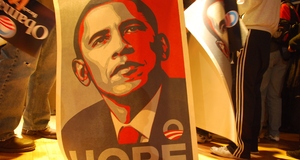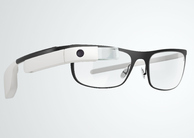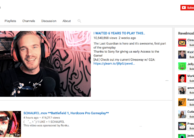During the same address, he went on: “For openers, it's just a plain falsehood to say, as our opponents in Congress and much of the press are saying, that the budget the Senate Budget Committee approved last Wednesday night is going to reduce social security payments. It does nothing of the kind” (Reagan, 1982). Unlike his press conferences, Reagan did not have to recall current news extemporaneously, as he had a speaking script right in front of him. In this way, he was able to fight against the media using his own media outlet. He would often signpost his topics to ensure easy comprehension among his listeners. If this crucial element was absent, listeners could not follow along.
Reagan undoubtedly took cues from Roosevelt on the effective use of signposting. Reagan’s May 1982 address is reminiscent of Roosevelt’s first Fireside Chat from March 1933: “I want to talk for a few minutes with the people of the United States about banking—with the comparatively few who understand the mechanics of banking but more particularly with the overwhelming majority who use banks for the making of deposits and the drawing of checks” (Roosevelt, 1933). The key to Roosevelt’s success was listenership awareness. Famed newspaper and radio columnist Walter Winchell observed that Roosevelt kept in mind “…a hypothetical audience that included a farmer, a housewife, a teacher, a stevedore, and a businessman” (Auer, 99). With Roosevelt, there was no complicated formula for speaking to the average citizen. He simply stated the facts as they existed in a language that everyone could understand.
Reagan used an impressive array of different rhetorical methods to connect to his audience. His language was reminiscent of Roosevelt’s in that the language was simple and direct. As political professors Lee Sigelman and Cynthia Whissell (2002) state: “…although he may have been the most powerful person in the world, when he spoke to his fellow Americans, he sounded almost exactly like one of them—someone they felt they knew well and someone with whom they would feel capable of, and comfortable in, sitting a while for a conversation” (Sigelman & Whissel, 144).
Although Reagan used to be a governor, his persona echoed his acting years. This distinction is important because of the context in which each role was performed. While a governor implements policies within a specific jurisdiction, a film star’s job of entertaining movie-goers is global. In other words, the film star reaches almost every jurisdiction in the world that has a movie theatre. Likewise, while a governor must usually project a formal image, an actor can move between many genres—drama, comedy, action and various others. In the words of Lou Cannon (1991): “Reagan [as President] believed in the role, and he was such a good actor that he did not seem to be an actor at all” (Cannon, 41).
Whether his tone was formal or informal, Ronald Reagan spoke like he was speaking to someone familiar. His diplomatic trip to Europe in June 1982 illustrated this tenet when he made a stop in Versailles, France: “Maybe I should say "bonjour." I'm speaking to you from the Palace of Versailles right outside Paris, France, and I'm not over here on a vacation. Along with the leaders of the other democratic industrial nations, I'm attending an economic summit, the eighth one in as many years” (Reagan, 1982). Here he was transparent in his administration. He enjoyed keeping in touch with his audience by directly alluding to his location. Similarly, he would also narrate a brief historical background of his location to evoke rich imagery.
In the same speech, he explained: “Versailles holds significance for the American people beyond its art treasures and architecture. This imposing structure has strong links to our own history. Within these walls Louis XVI and Benjamin Franklin concluded an alliance without which our Revolution's outcome might have been very different. And in 1783 the Treaty of Versailles, which led to the formal recognition of America's independence from England, was signed here” (Reagan, 1982).
By using detailed descriptions, he could make his audience feel that they were tourists. Like a skilled tour guide, Reagan effortlessly made historical information informative and interesting. Most importantly, he related how the location abroad linked to America. In this case, the 1783 Treaty of Versailles finalized America’s status as a separate nation. By relating such information, he could induce patriotism.
Appealing to national pride to garner popularity is one of the most important goals of any U.S. President. However, given the divisive nature of politics, a President must also appeal to his party as well. By accomplishing this objective, a President could ensure that his approval numbers remained strong. Moreover, if eligible to run for re-election, the incumbent would stand a good chance of winning. On August 25, 1984, two days after announcing his run for a second Presidential term, Reagan clarified his general beliefs: “That's why our third great goal is to help revive America's traditional values: faith, family, neighborhood, work, and freedom. Government has no business enforcing these values, but neither must it seek, as it did in the recent past, to suppress or replace them. That only robbed us of our tiller and sent us adrift” (Reagan, 1984). Since government in some form is necessary to maintain order and protect human rights, Reagan believed his Republican partisanship could accomplish both without prying behind the closed doors of the American home.
Reagan’s “feel good” temperament recalled the times of “social innocence” just before President Kennedy’s 1963 assassination. Indeed, Kennedy’s death marked a shift in American social attitudes for the rest of the 1960s. The latter years espoused movements such as the “hippies,” who challenged traditional values with rock n’ roll and illegal drugs. Similarly, during his own administration, Reagan witnessed the AIDS pandemic challenging society’s norms because it caused fear and mis-understanding among the general public. In light of this, Reagan’s temperament confidently prepared America for the uncertainties of the future.
Reagan, as a Republican, attacked the policies of the Democrats. This is seen in an address he made in May 1984: “In 1980 double-digit inflation was a silent thief of every paycheck. Today, it's been cut by nearly two-thirds. For the last 2 years, it's been under 4 percent” (Reagan, 1984). While this address does not explicitly mention the Democrats, most American listeners knew that Democrat Jimmy Carter was President in 1980. During Carter’s administration, the domestic economy worsened, causing double-digit inflation. Most importantly, however, Reagan mentions the progress of his administration in combating inflation. As he clearly shows, he had been successful up to that point in driving it down. Historically-speaking, the timing of this address was effective because he was finalizing his re-election run in the upcoming Presidential Election. Showing progress in an area where his predecessor failed would boost his chances of victory in the re-election campaign. At the same time, this would also tarnish the reputation of the Democratic party.
During the 1984 Presidential campaign, Ronald Reagan was less-subtle about pointing out the faults of the Democratic Party. The goal of his radio talks at that point was to show why Democratic Presidential Candidate Walter Mondale was unqualified to run the country. In an address from October 6, 1984, he criticizes Mondale’s policy on drugs: “Consider my opponent's first new initiative: “Create a high-level drug coordinator." Well, perhaps he hasn't heard, but we already have drug interdiction coordination at the highest possible level of government. The Vice President has been in charge of the South Florida Task Force and NNBIS from the start. And under his direction, nearly two dozen Federal agencies have been brought into the war on drugs; many, including the Army, Navy, Air Force, and Marines, are more involved in fighting drugs than ever before. Working with the Coast Guard and civilian law enforcement agencies, the military has contributed directly to the interdiction and seizure of major quantities of marijuana and cocaine in the past 2 years” (Reagan, 1984).
Reagan effectively attacked Mondale’s policies because he used this address to have the “last word.” He showed that Mondale would be ineffective as President because he was not aware that Vice President Bush already was already the “high-level drug coordinator.” As he explains, he supervised Bush’s role effectively because he is aware of the job that wages war on illegal drugs. Since beginning the radio addresses up to that point, he illustrates efficiency in his administration. As time progressed, his audience trusted his policy judgments. Subsequently, Ronald Reagan was re-elected for a second term.Continued on Next Page »
Abbott, P. (1997). Leadership by Exemplar: Reagan’s FDR and Thatcher’s Churchill. Presidential Studies Quarterly 27 (2) ,186-206.
Address to the nation on the explosion of the space shuttle challenger: January 28, 1986. In (1993). D. Houck & A. Kiewe (Eds.),Actor, Ideologue, Politician: The Public Speeches of Ronald Reagan(pp. 280-281). Westport, CT: Greenwood Press.
The American Presidency Project. (2011). Presidential News Conferences Hoover - Obama. Retrieved from http://www.presidency.ucsb.edu/news_conferences.php?year=1981&Submit=DISPLAY
Auer, J. J. (1992). Acting like a president; or, what has Ronald Reagan done to political speaking? In M. Weiler & W. Pearce (Eds.),Reagan and Public Discourse in AmericaTuscaloosa, AL: The University of Alabama Press.
Blankenship, J. and Muir, J.K. The Transformation of Actor to Scene: Some Strategic Grounds of the Reagan Legacy. In M. Weiler & W. Pearce (Eds.),Reagan and Public Discourse in AmericaTuscaloosa, AL: The University of Alabama Press.
Bostdorff, D.M. and Goldzwig, S.R. (2005). History, Collective Memory, and the Appropriation of Martin Luther King, Jr.: Reagan’s Rhetorical Legacy. Presidential Studies Quarterly 35 (4), 661-690.
Bush, G.H.W. (1990). Radio Address to the People of Czechoslovakia November 17, 1990. Retrieved from http://www.presidency.ucsb.edu/ws/index.php?pid=19068#ixzz1GMDk17o2.
Cannon, L. (1991). President Reagan: The role of a lifetime. New York: Simon & Schuster.
Edoardo, A.M., Fienberg S.E. and Skinner, K.K. (2007). Whose Ideas? Whose Words? Authorship of Ronald Reagan's Radio Addresses. PS: Political Science and Politics 40 (3), 501-506.
Erickson, P.D. (1985) Reagan Speaks: The Making of an American Myth. New York: New York University Press.
Internet Movie Database. (2011). Ronald Reagan (I) (1911–2004). Retrieved from http://www.imdb.com/name/nm0001654/#Actor.
Lim, E.T. (2002). Five Trends in Presidential Rhetoric: An Analysis of Rhetoric from George Washington to Bill Clinton. Presidential Studies Quarterly 32 (2), 328-366.
Locander, R. (1983). Modern Presidential In-Office Communications: The National, Direct, Local and Latent Strategies. Presidential Studies Quarterly 13 (2), 242-254.
NOAA. (2010). Mid Atlantic Winters: Snow, Wind, Ice and Cold. Retrieved from http://www.erh.noaa.gov/lwx/winter/DC-Winters.htm.
Reagan, R. (1982). Christmas Day Radio Address to the Nation December 25, 1982. Retrieved from http://www.presidency.ucsb.edu/ws/index.php?pid=42147#axzz1G3X83RAa.
Reagan, R. (1980). Election Eve Address "A Vision for America" November 3, 1980. Retrieved from http://www.presidency.ucsb.edu/ws/index.php?pid=85199.
Reagan, R. (1989). Farewell Address (January 11, 1989) Ronald Wilson Reagan. Retrieved from http://millercenter.org/scripps/archive/speeches/detail/3418.
Reagan, R. (1984). Radio Address to the Nation on Administration Policies August 25, 1984. Retrieved from http://www.presidency.ucsb.edu/ws/index.php?pid=40297#ixzz1GDoDNcNB.
Reagan, R. (1982). Radio Address to the Nation on Agriculture and Grain Exports October 15, 1982. Retrieved from http://www.presidency.ucsb.edu/ws/index.php?pid=41871.
Reagan, R. (1983). Radio Address to the Nation on the American Family December 3, 1983. Retrieved from http://www.presidency.ucsb.edu/ws/index.php?pid=40829#ixzz1G8xkRMWx
Reagan, R. (1985). Radio Address to the Nation on the American National Red Cross November 16, 1985. Retrieved from http://www.presidency.ucsb.edu/ws/index.php?pid=38084#axzz1G3X83RAa.
Reagan, R. (1983). Radio Address to the Nation on the Anniversary of the Birth of Martin Luther King, Jr. January 15, 1983. Retrieved from http://www.presidency.ucsb.edu/ws/index.php?pid=41387#axzz1G3X83RAa.
Reagan, R. (1982). Radio Address to the Nation on Armed Forces Day May 15, 1982. Retrieved from http://www.presidency.ucsb.edu/ws/index.php?pid=42525.
Reagan, R. (1988). Radio Address to the Nation on Armed Forces Day May 21, 1988. Retrieved from http://www.presidency.ucsb.edu/ws/index.php?pid=35862#ixzz1GM8QdQEM.
Reagan, R. (1987). Radio Address to the Nation on Budget Reform June 20, 1987. Retrieved from http://www.presidency.ucsb.edu/ws/index.php?pid=34457#ixzz1GL7gbloV.
Reagan, R. (1982). Radio Address to the Nation on the Caribbean Basin Initiative and Student Loans April 10, 1982. Retrieved from http://www.presidency.ucsb.edu/ws/index.php?pid=42382.
Reagan, R. (1985). Radio Address to the Nation on Civil Rights June 15, 1985. Retrieved from http://www.presidency.ucsb.edu/ws/index.php?pid=38782#ixzz1GE4jroep
Reagan, R. (1982). Radio Address to the Nation on the Congressional Agenda and the Economy November 6, 1982. Retrieved from http://www.presidency.ucsb.edu/ws/index.php?pid=41959.
Reagan, R. (1983). Radio Address to the Nation on Defense Spending February 19, 1983. Retrieved from http://www.presidency.ucsb.edu/ws/index.php?pid=40950#axzz1G3X83RAa.
Reagan, R. (1987). Radio Address to the Nation on Deficit Reduction March 28, 1987. Retrieved from http://www.presidency.ucsb.edu/ws/index.php?pid=34034#ixzz1GL5oj2gr.
Reagan, R. (1984). Radio Address to the Nation on Deficit Reduction and Taxation August 4, 1984. Retrieved from http://www.presidency.ucsb.edu/ws/index.php?pid=40233#ixzz1GALKs4i0.
Reagan, R. (1983). Radio Address to the Nation on Domestic Social Issues January 22, 1983. Retrieved from http://www.presidency.ucsb.edu/ws/index.php?pid=41643
Reagan, R. (1984). Radio Address to the Nation on Drug Abuse October 6, 1984. Retrieved from http://www.presidency.ucsb.edu/ws/index.php?pid=39198#ixzz1GDr2NfTc.
Reagan, R. (1982). Radio Address to the Nation on Economic and Budget Issues October 23, 1982. Retrieved from http://www.presidency.ucsb.edu/ws/index.php?pid=41908.
Reagan, R. (1985). Radio Address to the Nation on Economic Growth February 9, 1985. Retrieved from http://www.presidency.ucsb.edu/ws/index.php?pid=38202#ixzz1GE29aNin.
Reagan, R. (1985). Radio Address to the Nation on Economic Growth January 26, 1985. Retrieved from http://www.presidency.ucsb.edu/ws/index.php?pid=38899#ixzz1GE1KcL00.
Reagan, R. (1985). Radio Address to the Nation on Economic Growth and Minorities July 27, 1985. Retrieved from http://www.presidency.ucsb.edu/ws/index.php?pid=38939.
Reagan, R. (1985). Radio Address to the Nation on Economic Growth and Tax Reform August 3, 1985. Retrieved from http://www.presidency.ucsb.edu/ws/index.php?pid=38971#ixzz1GE6MPr5K.
Reagan, R. (1983). Radio Address to the Nation on the Economic Recovery Program February 5, 1983. Retrieved from http://www.presidency.ucsb.edu/ws/index.php?pid=40817#axzz1G3X83RAa.
Reagan, R. (1984). Radio Address to the Nation on the Economic Recovery Program January 21, 1984. Retrieved from http://www.presidency.ucsb.edu/ws/index.php?pid=41643.
Reagan, R. (1984). Radio Address to the Nation on the Economic Recovery Program and on Tax Reductions April 21, 1984. Retrieved from http://www.presidency.ucsb.edu/ws/index.php?pid=39711#ixzz1G93EJ0kg.
Reagan, R. (1982). Radio Address to the Nation on the Economy August 28, 1982. Retrieved from http://www.presidency.ucsb.edu/ws/index.php?pid=42900.
Reagan, R. (1984). Radio Address to the Nation on the Economy June 23, 1984. Retrieved from http://www.presidency.ucsb.edu/ws/index.php?pid=40090#axzz1G3X83RAa.
Reagan, R. (1982). Radio Address to the Nation on the Economy October 16, 1982. Retrieved from http://www.presidency.ucsb.edu/ws/index.php?pid=41876.
Reagan, R. (1988). Radio Address to the Nation on the Economy October 22, 1988. Retrieved from http://www.presidency.ucsb.edu/ws/index.php?pid=35051#ixzz1GMBG5JvW.
Reagan, R. (1984). Radio Address to the Nation on the Economy and on National Defense May 26, 1984. Retrieved from http://www.presidency.ucsb.edu/ws/index.php?pid=39974#ixzz1G96PAoTa.
Reagan, R. (1983). Radio Address to the Nation on Education April 30, 1983. Retrieved from http://www.presidency.ucsb.edu/ws/index.php?pid=41259#ixzz1G8KD899C.
Reagan, R. (1984). Radio Address to the Nation on Education September 8, 1984. Retrieved from http://www.presidency.ucsb.edu/ws/index.php?pid=40345#ixzz1GDpbvMEF.
Reagan, R. (1983). Radio Address to the Nation on Employment Programs March 5, 1983. Retrieved from http://www.presidency.ucsb.edu/ws/index.php?pid=41003.
Reagan, R. (1986). Radio Address to the Nation on the Federal Budget February 1, 1986. Retrieved from http://www.presidency.ucsb.edu/ws/index.php?pid=36446#ixzz1GEmiEdXi.
Reagan, R. (1982). Radio Address to the Nation on Federal Budget Legislation and Unemployment Figures May 8, 1982. Retrieved from http://www.presidency.ucsb.edu/ws/index.php?pid=42499.
Reagan, R. (1982). Radio Address to the Nation on the Federal Budget and the Western Alliance May 29, 1982. Retrieved from http://www.presidency.ucsb.edu/ws/index.php?pid=42584.
Reagan, R. (1983). Ronald Reagan: Radio Address to the Nation on Federal Income Taxes April 9, 1983. Retrieved from http://www.presidency.ucsb.edu/ws/index.php?pid=41164#ixzz1G7z4xRCa.
Reagan, R. (1983). Radio Address to the Nation on the Federal Reserve Board Chairman, the Seventh Space Shuttle Flight, and Science Education June 18, 1983. Retrieved from http://www.presidency.ucsb.edu/ws/index.php?pid=41495#ixzz1G8M9SDKr.
Reagan, R. (1983). Radio Address to the Nation on the First Session of the 98th Congress November 19, 1983. Retrieved from http://www.presidency.ucsb.edu/ws/index.php?pid=40795#ixzz1G8ww0rCZ.
Reagan, R. (1983). Radio Address to the Nation on the Fiscal Year 1984 Budget February 12, 1983. Retrieved from http://www.presidency.ucsb.edu/ws/index.php?pid=40925#axzz1G3X83RAa.
Reagan, R. (1983). Radio Address to the Nation on the Fiscal Year 1984 Budget February 12, 1983. Retrieved from http://www.presidency.ucsb.edu/ws/index.php?pid=40925#axzz1G3X83RAa.
Reagan, R. (1983). Radio Address to the Nation on the Fiscal Year 1984 Budget January 29, 1983. Retrieved from http://www.presidency.ucsb.edu/ws/index.php?pid=40517#axzz1G3X83RAa.
Reagan, R. (1987). Radio Address to the Nation on the Fiscal Year 1988 Budget January 10, 1987. Retrieved from http://www.presidency.ucsb.edu/ws/index.php?pid=33875#ixzz1GL2Ywd3R.















